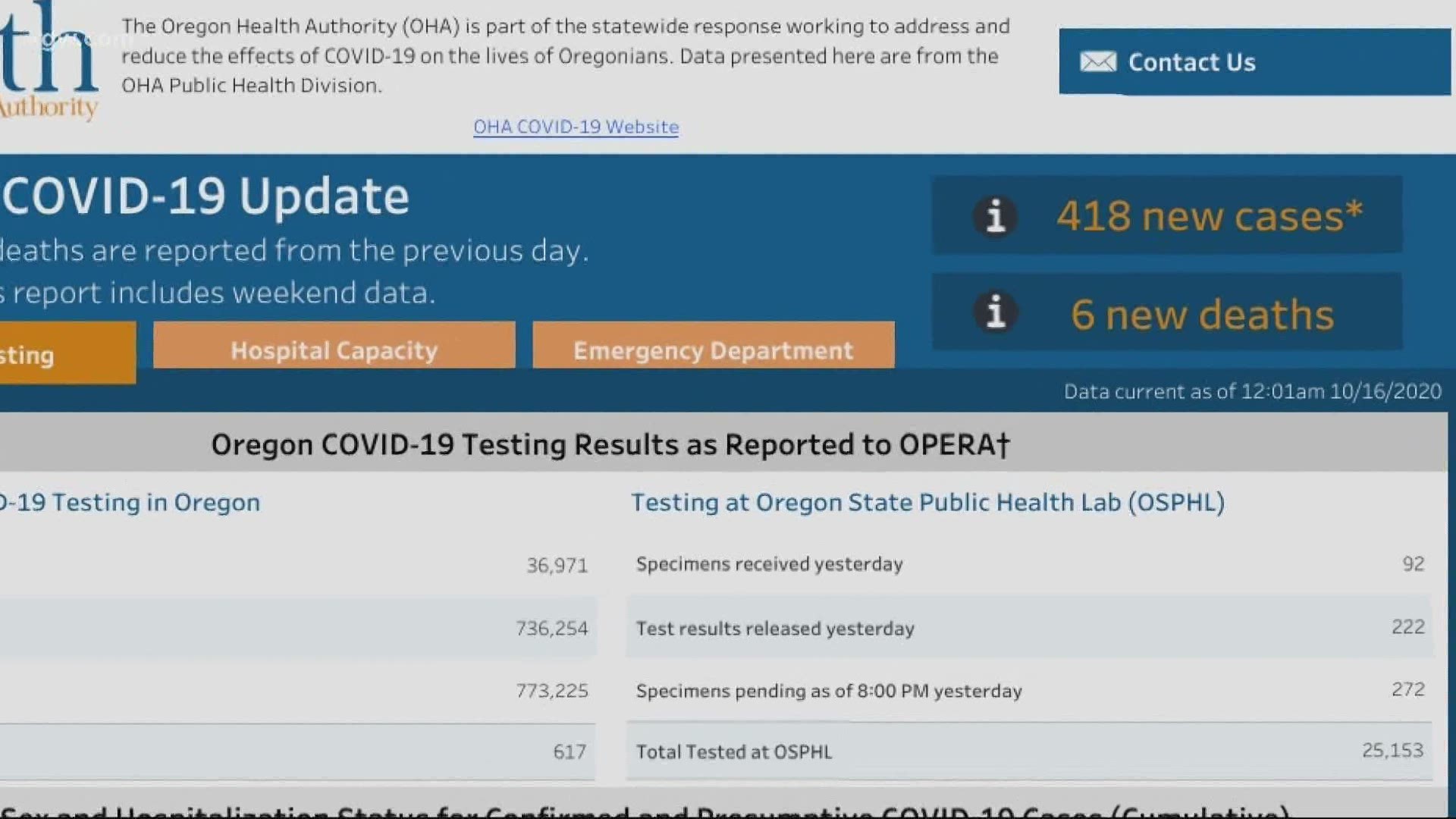PORTLAND, Ore — Almost 39,000 Oregonians have been diagnosed with COVID-19.
On Friday, the Oregon Health Authority (OHA) reported 418 new cases. Six more people have died, meaning the virus has now claimed 617 lives in the state.
OHA called the trends a "reversal of the encouraging landscape" from just six weeks ago.
After the unusual year we've had you may feel tempted to celebrate Halloween the way you usually do. But, unfortunately, state health officials urge you to skip bigger social gatherings or trick-or-treating this year.
New modeling from OHA shows more get-togethers and people heading inside as weather turns - where the coronavirus thrives - could make a daunting trend far worse.
"We’re asking Oregonians to make individual actions. A different Halloween and a different fall than we might have liked will begin to change the trajectory and we need to bend this trend back downward. We’ve done it twice before," OHA Director Pat Allen said in a media teleconference Friday, "But it will require a coordinated, consistent and sustained effort and strict vigilance."
Coronavirus cases are as high as they've been during the pandemic. Positive test rates and deaths are on the rise, while hospitalizations shot up.
The biggest driver of the surge: Oregonians hanging out in bigger groups.
"It’s both a disbelief in the risk, not perceiving the risk applying to them, and we tend to let our guard down around friends and family,” Oregon State Health Officer Dr. Dean Sidelinger said.
The health authority cited research showing those who get together more frequently and with more people tend to doubt the severity of COVID-19.
"People are really focused on my kid or myself and 'what are the chances that I'll have a bad outcome? I'm willing to take that risk'. And people, I think, really still are not thinking about the risk of giving it to others who are vulnerable," Director Allen said.
Because of those factors, numbers look similar to where they were in July when community spread was rampant.
"Part of what we're trying to get people to do is not think of coronavirus as this thing that comes and goes, and so we can do a burst of something special and then go back to what we were doing before," Allen said, "We need people to make a lasting change in their individual behavior and that lasting change is gonna need to be with us for months."
On top of informing us, the Oregon Health Authority has to wrestle misinformation. They dispelled rumors Friday, particularly around the flu and vaccines, citing clear data showing COVID-19 is more deadly than the seasonal flu.
Health officials say prominent people downplaying the severity of the virus makes their jobs even harder.
They want to make sure young, healthy people understand that while their risk of serious infection or death is lower, the risk is still existent.
"We have yet to learn the long-term effects of COVID-19," Dr. Sidelinger said.
Director Allen doesn't think living with the virus long-term - before a vaccine comes out and is widely disseminated - should mean staying home and keeping everything shut down.
"That's the balance we're trying to shoot for, is how can we live with this virus and have a functioning society and do it safely? And we think we can do that," he said.
But it falls on all of us; the same preventive measures health officials have repeated for months still ring true. We must remain vigilant by washing our hands, wearing face coverings, staying physically distant and not gathering in groups.
OHA also announced it submitted its plan for allocating and distributing a vaccine in Oregon once a safe and effective vaccine(s) becomes available. The state would prioritize communities and color and those who have been disproportionately impacted by COVID-19.

